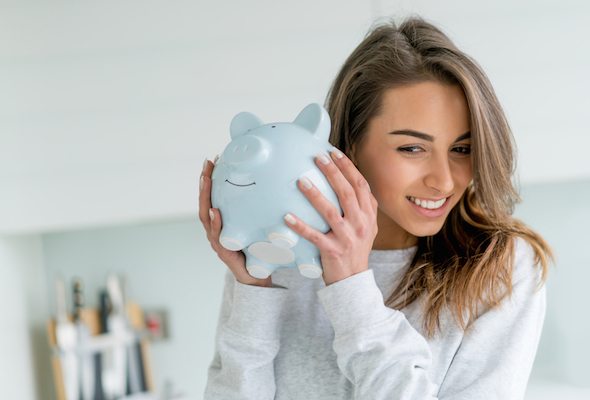A strong currency can shape everything from the price you pay for imported goods to the power your country holds in the global marketplace. When a nation’s money rises in value, it can boost purchasing power, influence trade and even shift investment flows around the world. But a “strong” currency isn’t always an automatic win, its impact depends on who you are, what you buy and how your economy is positioned.
A financial advisor can help you with all of your financial planning, including investing in multiple countries.
What Makes a Currency Strong or Weak?
A currency is considered strong when it has high purchasing power compared with other global currencies, meaning it can buy more goods, services or foreign currency units. Strength often reflects confidence in a country’s economic stability, driven by factors such as low inflation, steady GDP growth and a well-managed fiscal and monetary policy. When investors believe a nation’s economy is healthy and its government is financially responsible, demand for its currency tends to rise, pushing its value higher.
On the other hand, a currency is viewed as weak when it loses purchasing power or declines relative to others. High inflation, political instability, heavy national debt or sluggish economic growth can erode investor confidence and reduce demand for the currency.
Weak currencies can make imports more expensive and reduce the value of savings, but they may also help boost exports by making domestic goods cheaper for foreign buyers. Understanding these dynamics helps investors and consumers interpret currency movements and the broader economic conditions behind them.
Safe Havens From Bad Economies
Currencies often strengthen when global investors are looking for places to shield their money from economic turmoil. In periods of high inflation, geopolitical conflict or market instability, investors tend to move their capital into currencies backed by stable governments, strong financial systems and predictable monetary policies. This flight to safety can push demand higher for currencies like the U.S. dollar, Swiss franc or Japanese yen, reinforcing their reputation as safe-haven options.
These currencies act as anchors because they offer lower perceived risk and greater liquidity during uncertain times. Even if their issuing countries experience slower growth, their political stability and central bank credibility make them attractive when other economies falter. For investors, understanding how safe-haven currencies behave during global stress can offer valuable insight into managing risk and maintaining stability in an international portfolio.
Benefits of a Strong Currency

A strong currency can influence nearly every part of a nation’s economy, from consumer spending power to international trade dynamics. When a currency gains value relative to others, it often reflects economic stability, investor confidence and healthy financial fundamentals. These advantages can ripple outward, benefiting both businesses and consumers in meaningful ways.
- Increased foreign investment due to economic confidence: Investors often view strong currencies as signs of economic stability and seek opportunities in those markets. This can attract additional capital into stocks, bonds and real estate. Increased investment can contribute to job growth, innovation and broader economic expansion.
- Cheaper imports for consumers: When a currency is strong, households pay less for imported goods like electronics, fuel and household items. This can help reduce inflation and stretch consumer budgets further. Over time, lower import costs can also boost overall purchasing power.
- Greater global purchasing power for travelers and businesses: A strong currency makes international travel more affordable and gives companies more leverage when buying materials or services abroad. This can lower business expenses and make global expansion more feasible. Travelers also enjoy more favorable exchange rates, making trips less costly.
Benefits of a Weak Currency
A weak currency may sound like a disadvantage, but under the right conditions it can offer meaningful economic benefits. Countries facing trade imbalances, sluggish growth or declining exports often find that a weaker currency helps stimulate activity by making their goods more attractive abroad. For investors and policymakers alike, understanding why a weaker currency can be helpful provides important context for interpreting global market movements and economic strategy. Here are some benefits:
- Boosts exports by making them more competitive: When a currency weakens, the country’s goods become cheaper for foreign buyers. This can stimulate demand for exports and help domestic industries grow. Strong export performance can also support job creation and economic expansion.
- Encourages tourism and foreign spending: A weaker currency makes travel more affordable for international visitors, potentially boosting tourism-driven economies. This increase in spending helps local businesses and can provide a meaningful boost to regional economies.
- May help reduce trade deficits: By making imports more expensive and exports more attractive, a weak currency can help narrow trade imbalances. This shift can strengthen domestic production and reduce reliance on foreign goods over time.
Bottom Line

A strong currency is good for people who like to travel abroad, and people who like imported products, because those will be cheaper. However, it can be bad for domestic companies. When currency is weak, that can be really good for jobs, but it’s bad for people who want to travel abroad or use imported products. And with the world getting more and more global, more and more products are imported, so that affects people’s disposable income. Ideally, it’s important to maintain a balance.
Tips for Financial Planning
- A financial advisor can help you with your long-term financial planning or with your short-term investments. Finding a financial advisor doesn’t have to be hard. SmartAsset’s free tool matches you with vetted financial advisors who serve your area, and you can have a free introductory call with your advisor matches to decide which one you feel is right for you. If you’re ready to find an advisor who can help you achieve your financial goals, get started now.
- Need help with retirement planning? A financial advisor can help but if you’re looking to get started on your own, consider using a retirement calculator to help you see how much you might need to save for your long-term planning.
Photo credit: ©iStock.com/andresr, ©iStock.com/Eva Katalin Kondoros, ©iStock.com/danchooalex
